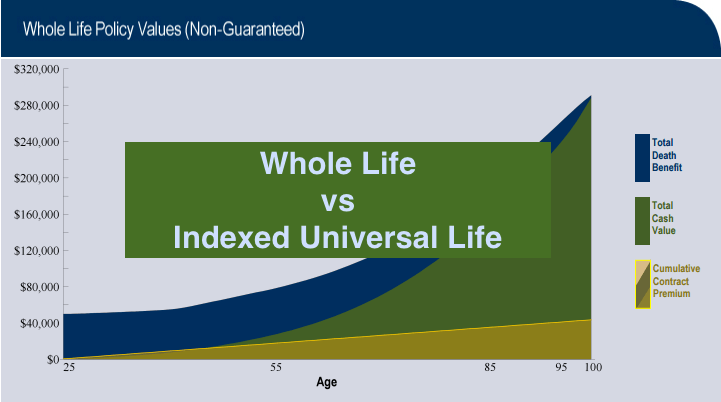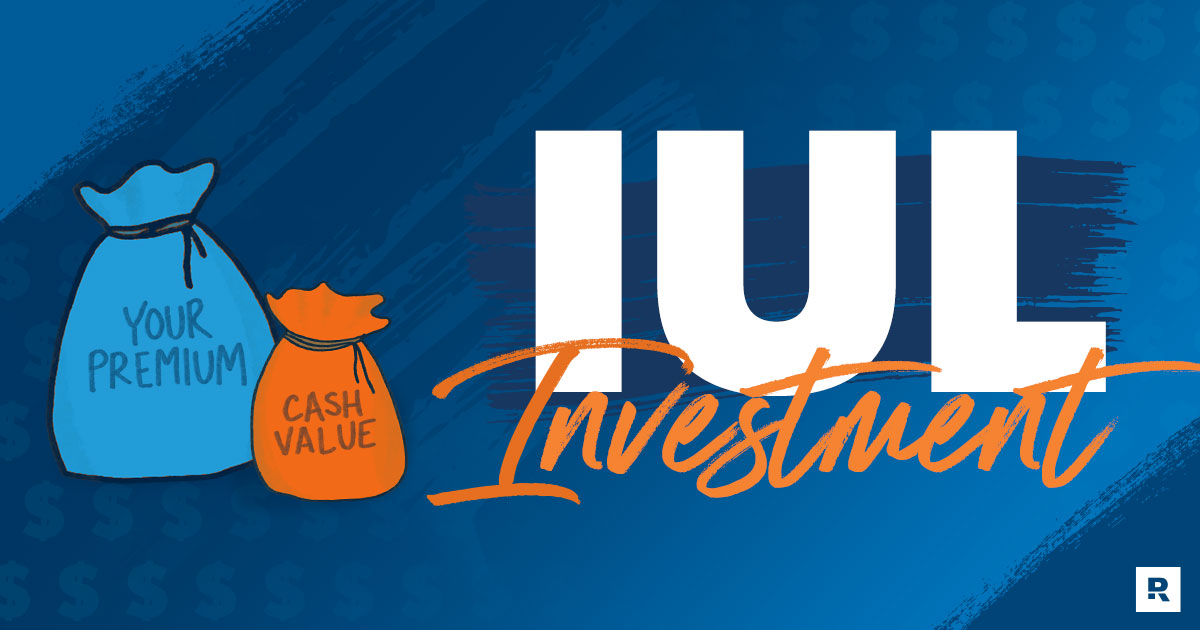All Categories
Featured
Table of Contents
1), often in an effort to defeat their category averages. This is a straw male debate, and one IUL individuals enjoy to make. Do they compare the IUL to something like the Lead Total Amount Stock Exchange Fund Admiral Show no tons, a cost ratio (EMERGENCY ROOM) of 5 basis points, a turn over proportion of 4.3%, and an extraordinary tax-efficient record of distributions? No, they contrast it to some awful actively managed fund with an 8% load, a 2% ER, an 80% turnover ratio, and a horrible record of short-term capital gain distributions.
Shared funds frequently make yearly taxed distributions to fund owners, even when the value of their fund has decreased in value. Shared funds not just call for earnings reporting (and the resulting yearly taxation) when the common fund is rising in worth, yet can likewise enforce income tax obligations in a year when the fund has actually gone down in value.
You can tax-manage the fund, collecting losses and gains in order to reduce taxable distributions to the financiers, yet that isn't somehow going to change the reported return of the fund. The ownership of mutual funds may need the shared fund owner to pay approximated tax obligations (equity indexed universal).

IULs are very easy to position so that, at the owner's death, the recipient is exempt to either earnings or inheritance tax. The same tax reduction strategies do not function virtually also with shared funds. There are countless, commonly expensive, tax catches linked with the timed acquiring and marketing of shared fund shares, catches that do not put on indexed life Insurance policy.
Opportunities aren't extremely high that you're going to be subject to the AMT as a result of your common fund circulations if you aren't without them. The rest of this one is half-truths at best. While it is true that there is no income tax due to your beneficiaries when they acquire the profits of your IUL policy, it is likewise true that there is no income tax due to your successors when they inherit a shared fund in a taxed account from you.
Universal Life Insurance Expires When
There are far better ways to avoid estate tax obligation concerns than buying financial investments with low returns. Shared funds might cause revenue taxation of Social Safety advantages.
The growth within the IUL is tax-deferred and might be taken as tax obligation complimentary income by means of financings. The plan owner (vs. the mutual fund manager) is in control of his/her reportable earnings, hence allowing them to lower or perhaps remove the taxation of their Social Safety benefits. This set is great.
Here's an additional minimal issue. It holds true if you buy a shared fund for state $10 per share right before the circulation date, and it distributes a $0.50 distribution, you are then mosting likely to owe tax obligations (probably 7-10 cents per share) regardless of the reality that you haven't yet had any gains.
But ultimately, it's really concerning the after-tax return, not just how much you pay in taxes. You are mosting likely to pay more in tax obligations by utilizing a taxed account than if you acquire life insurance policy. But you're additionally most likely going to have even more cash after paying those taxes. The record-keeping demands for possessing common funds are significantly more complex.
With an IUL, one's documents are kept by the insurance policy firm, duplicates of yearly statements are sent by mail to the proprietor, and circulations (if any kind of) are totaled and reported at year end. This is likewise type of silly. Certainly you ought to maintain your tax obligation records in case of an audit.
Back End Load Universal Life
Rarely a factor to acquire life insurance policy. Shared funds are frequently part of a decedent's probated estate.
Furthermore, they undergo the hold-ups and expenditures of probate. The profits of the IUL policy, on the various other hand, is constantly a non-probate distribution that passes outside of probate straight to one's named beneficiaries, and is as a result exempt to one's posthumous lenders, unwanted public disclosure, or comparable delays and expenses.
Medicaid disqualification and life time income. An IUL can give their proprietors with a stream of revenue for their whole life time, regardless of exactly how lengthy they live.

This is beneficial when arranging one's events, and converting properties to earnings prior to an assisted living home confinement. Shared funds can not be transformed in a comparable manner, and are often considered countable Medicaid properties. This is another foolish one promoting that poor individuals (you recognize, the ones that need Medicaid, a federal government program for the poor, to spend for their nursing home) should use IUL rather of common funds.
Variable Universal Life Insurance Problems
And life insurance coverage looks awful when contrasted rather versus a pension. Second, people that have money to get IUL over and past their retired life accounts are mosting likely to need to be awful at taking care of cash in order to ever qualify for Medicaid to spend for their assisted living home prices.
Persistent and incurable health problem biker. All policies will certainly enable a proprietor's simple accessibility to cash money from their policy, usually forgoing any type of abandonment fines when such people endure a significant health problem, require at-home care, or come to be constrained to an assisted living home. Mutual funds do not supply a comparable waiver when contingent deferred sales fees still put on a mutual fund account whose proprietor needs to offer some shares to money the prices of such a keep.
Universal Life Ideal
You obtain to pay more for that benefit (motorcyclist) with an insurance policy. What a large amount! Indexed global life insurance offers death advantages to the recipients of the IUL owners, and neither the proprietor neither the recipient can ever lose cash as a result of a down market. Mutual funds supply no such guarantees or fatality advantages of any kind of kind.
Currently, ask on your own, do you actually require or want a death benefit? I certainly do not require one after I get to financial freedom. Do I want one? I mean if it were affordable enough. Obviously, it isn't cheap. Usually, a buyer of life insurance policy spends for the real cost of the life insurance policy advantage, plus the expenses of the plan, plus the earnings of the insurance coverage business.
Equity In Life Insurance
I'm not totally certain why Mr. Morais included the entire "you can't lose cash" again here as it was covered rather well in # 1. He just intended to duplicate the ideal selling point for these things I mean. Once again, you do not shed nominal bucks, yet you can lose genuine bucks, in addition to face major possibility cost due to low returns.

An indexed universal life insurance policy owner may trade their policy for a totally various policy without triggering revenue taxes. A mutual fund owner can not move funds from one mutual fund business to one more without marketing his shares at the previous (therefore activating a taxed event), and buying new shares at the last, often subject to sales charges at both.
While it is true that you can exchange one insurance coverage for one more, the reason that people do this is that the initial one is such a terrible policy that even after acquiring a new one and going via the very early, negative return years, you'll still come out in advance. If they were sold the right plan the very first time, they shouldn't have any type of desire to ever trade it and go through the early, adverse return years once again.
Latest Posts
Using Iul For Retirement
How To Sell Indexed Universal Life Insurance
Group Universal Life Insurance